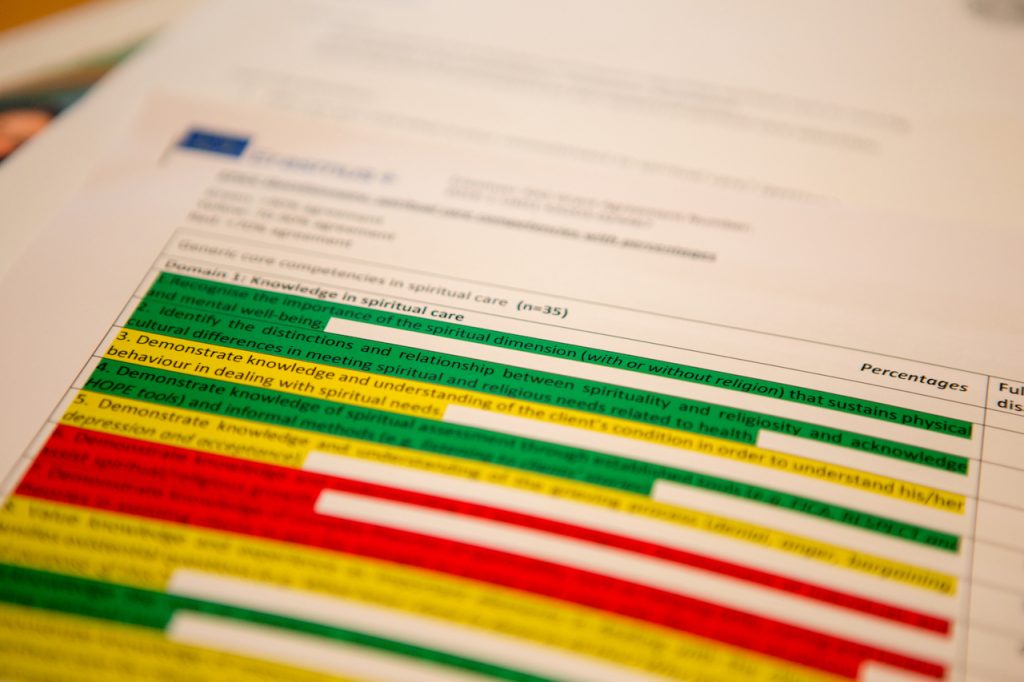Many nursing regulatory and educational bodies require nurses, at point of registration, to be able to address the personal, religious and spiritual beliefs of their clients as part of person centred holistic care. How learners acquire these skills, however, is less clear.
Our research to date highlights that the teaching students receive is important in their learning about spiritual/person centred care, yet there is a great deal of inconsistency in how this topic is addressed within programmes of nurse education across Europe (Ross, et al., 2014, 2016).
Despite these inconsistencies there is a great deal of innovation in the teaching of spiritual/person centred care that needs to be captured, shared and built upon to ensure nursing students are equipped to address the holistic needs of the people they care for. This will ensure the nursing workforce of the future is prepared to address some of the global challenges that are impacting upon international nursing and healthcare.

EPICC project aims
- Establish a sustainable network and partnerships where nursing educators can share experiences, research and resources related to spiritual care, to inform their teaching.
- Enable nursing educators to acquire new knowledge/skills in the learning and teaching of personal, religious and spiritual aspects of person-centred care.
- Review how personal, religious and spiritual aspects of care are currently addressed in a sample of higher education institutions (HEIs) from across Europe.
- Analyse current practice identifying factors and processes that enable or inhibit the teaching of these areas in nursing and midwifery curricula.
- Develop and test an innovative, dynamic and flexible Spiritual care Matrix for pre-registration nursing and midwifery education based upon international best practice and evidence which can be adopted by HEIs across Europe.
- Identify strategies and develop resources to inform professional regulatory bodies and key stakeholders.
- Ensure the project is informed by student and patient/public representatives.
This project has the potential to generate a rich insight into current educational practice, enable the sharing of best practice and the development of a uniform approach to how personal, religious and spiritual beliefs are incorporated into nursing curricula through the generation of guidance.
References
Ross, L., van Leeuwen, R., Baldacchino, D., Giske, T., McSherry, W., Narayanasamy, A., Downes, C., Jarvis, P., & Schep-Akkerman, A. (2014). Student nurses perceptions of spirituality and competence in delivering spiritual care: A European pilot study. Nurse Education Today, 34, 697–702. doi: 10.1016/j.nedt.2013.09.014.
Ross, L., van Leeuwen, R., Baldacchino, D., Giske, T., McSherry, W., Narayanasamy, A., Downes, C., Jarvis, P., & Schep-Akkerman, A. (2016). Factors contributing to student nurses’/midwives’ perceived competency in spiritual care. Nurse Education Today, 36, 445–451. doi: 10.1016/j.nedt.2015.10.005.